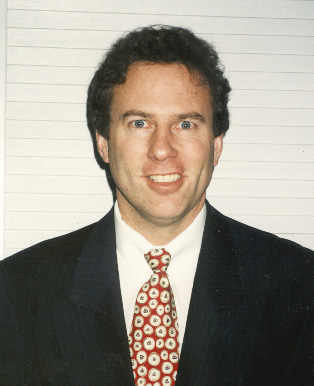Cable Vs. Satellite: Who Wins Which Battles?
The smarter way to stay on top of the multichannel video marketplace. Sign up below.
You are now subscribed
Your newsletter sign-up was successful
Since its mid-1994 launch, the direct-broadcast satellite industry has stuck it to cable. Yet today, in most U.S. TV households, the tide may be shifting toward cable.
The reasons behind these shifts involve the very nature of competition between companies fighting to survive. The No. 1 reason the EchoStar Communications Corp.-DirecTV Inc. satellite duopoly worries today about the fleet-footed cable industry is the latter's "big new pipes" and cable's ability to deliver consumers the "bundled magic" of one, digital audio and video; two, telephony; and three, high-speed data.
Moreover, there is a clear reason why this article's title does not discuss the cable vs. satellite war, rather than the battles —
no one can yet predict who'll win.
The victories and defeats in the war between cable and satellite will be based upon the relative advantages and disadvantages of each player in each market, for given periods of time, and upon competition in each area listed below:
Technology: Advantage Cable.
Cable's delivery of "bundled magic" puts satellite (and telephony, and wireless) at a distinct disadvantage technologically. All three "outsiders" are seeking new partners and new technologies to get them into this bigger game. Additionally, new cable solutions, such as Sony Corp.'s Passage
(which merges encryption and conditional access), provide the industry great promise to allow for greater flexibility in set-top box deployment, new services availability, and the sharing of bandwidth.
Satellite needs similar solutions if it expects to continue to be the leader, en masse, in the delivery of quality video. It also requires innovations such as electronic program guides, digital video recorders, and HDTV. Arguably, assuming that cable attains an advantage in this single area, that gives it the overall edge — despite satellite's relative strength in almost every other area below.
Customer Service: Advantage Satellite.
DirecTV Inc. reports recently that it again received a top award for having provided its multichannel subscribers with the best-in-class service. For both DirecTV and EchoStar Communications Corp., both remain well above their cable competition. In order to truly thrive, even the subscriber in the smallest and most remote of Comcast Corp.'s most-distant systems, must be able to expect first class, prompt service when he or she calls, writes or e-mails.
The smarter way to stay on top of the multichannel video marketplace. Sign up below.
Financials: Advantage Satellite.
DBS models are based on the concept of cash flow, rather than the model of return on invested capital. Most of satellite's metrics today are stronger, be they ARPU, churn or cash flow.
Marketing: Advantage Satellite.
Satellite can market on a national basis, which no cable operator can do. Yet, conversely, cable can do a better job of marketing a distinctly local message.
Distribution: Advantage Satellite.
Retail outlets, direct marketers and dealers make up the satellite-TV sales chain.
Programming: Advantage Satellite.
Satellite retains the advantage, according to a recent version of a multiyear study performed by The Carmel Group. For example, the average per-channel, per-month price for digital cable was 39 cents, while the same measure for EchoStar or DirecTV was 34 cents.
Advanced Services: Advantage Satellite.
Satellite earns a slight edge in the delivery of HDTV services, but cable knows its importance and is concentrating on it. For DVRs, it's satellite, but cable has a strong shot here, too. For interactive TV, its still satellite, but until Rupert Murdoch purchases DirecTV toward year-end, most Americans will remain unable to appreciate ITV, and it will remain last on the list of new, advanced services. The only cable advantage in this subsector is video-on-demand, but doubt remains whether cable, as an industry, can capitalize on it.
Executive Management: Advantage Satellite.
This is not to say that cable management — especially trusted stars like Jim Robbins, Jim Chiddix, Carl Vogel, Brian Roberts and Chuck Dolan — aren't making changes to make it happen. Rather, when you look at the number of advantages satellite holds from the list above, it is hard not to give the nod to the folks in the sky … at least for now.
Jimmy Schaeffler is chairman and CSO of The Carmel Group, a nearly three-decades-old west coast-based telecom and entertainment consultancy founded in 1995.

